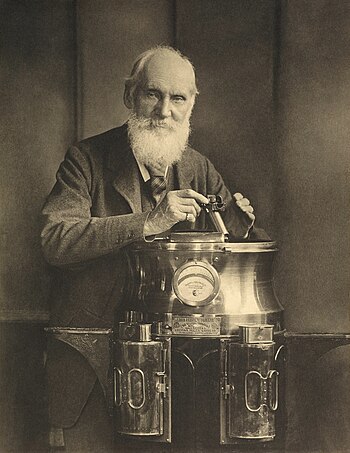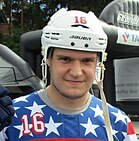Main Page
From today's featured article

Torture is the deliberate infliction of severe pain or suffering on a person for various reasons, including punishment, extracting a confession, interrogation for information, or intimidating third parties. Some definitions of torture are restricted to acts carried out by the state, but others include non-state organizations. A variety of methods of torture are used, including psychological methods to provide deniability. Beating is the most common form of physical torture. Most victims of torture are poor and marginalized people suspected of crimes, although torture against political prisoners or during armed conflict has received disproportionate attention. Torture is prohibited under international law for all states under all circumstances and is explicitly forbidden by several treaties. Opposition to torture stimulated the formation of the human rights movement after World War II, and torture continues to be an important human rights issue. (Full article...)
Did you know ...
- ... that Clark House (pictured) hosted Cold War meetings?
- ... that a 2022 book lamented that American painter Edna Hibel did not have a Wikipedia article?
- ... that there are more than 9,000 swamps in Belarus?
- ... that before becoming a voice actor, Kenichirou Matsuda attended law school trying to become a civil servant?
- ... that the first Hindu temple in Wisconsin was built "in the middle of nowhere"?
- ... that Alan Choe was tasked with developing Queenstown, Singapore's first satellite town, after its British architects left the country in the mid-1950s?
- ... that Google's Client Hints proposal was initially classified as "harmful" by Mozilla?
- ... that Dick Walker's discovery of Saturn's moon Epimetheus was only realized twelve years later?
- ... that Richard Linklater's original concept for Dazed and Confused took place entirely within a car as its characters listened to ZZ Top?
In the news
- In ice hockey, the Florida Panthers (captain Aleksander Barkov pictured) defeat the Edmonton Oilers to win the Stanley Cup Finals.
- Coordinated attacks in Dagestan, Russia, leave 28 people dead.
- The Iberian lynx is reclassified from endangered to vulnerable on the IUCN Red List.
- Thailand's parliament passes a bill to recognise same-sex marriage.
- American baseball player Willie Mays dies at the age of 93.
On this day
- 1409 – The Council of Pisa elected Peter of Candia as Alexander V, becoming the third simultaneous claimant of the papacy during the Western Schism.
- 1844 – Julia Gardiner (pictured) married President John Tyler at the Church of the Ascension in New York, becoming the first lady of the United States.
- 1889 – Bangui, the capital and largest city of the present-day Central African Republic, was founded in French Congo.
- 1907 – Organized by Vladimir Lenin and Joseph Stalin, among others, Bolshevik revolutionaries robbed a bank stagecoach in Tiflis, present-day Georgia.
- 1997 – Harry Potter and the Philosopher's Stone, the first book in the Harry Potter series of fantasy novels by J. K. Rowling, was published.
- Marie Thérèse Geoffrin (b. 1699)
- Mary van Kleeck (b. 1883)
- Grand Duchess Maria Nikolaevna of Russia (b. 1899)
- Olive Morris (b. 1952)
Today's featured picture

|
Lord Kelvin (26 June 1824 – 17 December 1907) was a British mathematician, mathematical physicist and engineer. Born in Belfast, he was Professor of Natural Philosophy at the University of Glasgow for 53 years, where he undertook significant research, including on electricity and the formulation of the first and second laws of thermodynamics. He was also the first to determine the correct value of absolute zero, and the Kelvin scale of temperature is named in his honour. Kelvin received the Copley Medal in 1883, served as the president of the Royal Society from 1890 to 1895, and in 1892 became the first British scientist to be elevated to the House of Lords. This photograph, taken circa 1900, shows Kelvin resting on a binnacle (the stand for a marine compass) of his invention, and holding a marine azimuth mirror. Photograph credit: T. & R. Annan & Sons; restored by Adam Cuerden
Recently featured:
|
Other areas of Wikipedia
- Community portal – The central hub for editors, with resources, links, tasks, and announcements.
- Village pump – Forum for discussions about Wikipedia itself, including policies and technical issues.
- Site news – Sources of news about Wikipedia and the broader Wikimedia movement.
- Teahouse – Ask basic questions about using or editing Wikipedia.
- Help desk – Ask questions about using or editing Wikipedia.
- Reference desk – Ask research questions about encyclopedic topics.
- Content portals – A unique way to navigate the encyclopedia.
Wikipedia's sister projects
Wikipedia is written by volunteer editors and hosted by the Wikimedia Foundation, a non-profit organization that also hosts a range of other volunteer projects:
-
Commons
Free media repository -
MediaWiki
Wiki software development -
Meta-Wiki
Wikimedia project coordination -
Wikibooks
Free textbooks and manuals -
Wikidata
Free knowledge base -
Wikinews
Free-content news -
Wikiquote
Collection of quotations -
Wikisource
Free-content library -
Wikispecies
Directory of species -
Wikiversity
Free learning tools -
Wikivoyage
Free travel guide -
Wiktionary
Dictionary and thesaurus
Wikipedia languages
This Wikipedia is written in English. Many other Wikipedias are available; some of the largest are listed below.
-
1,000,000+ articles
-
250,000+ articles
-
50,000+ articles


.jpg)

.jpg)